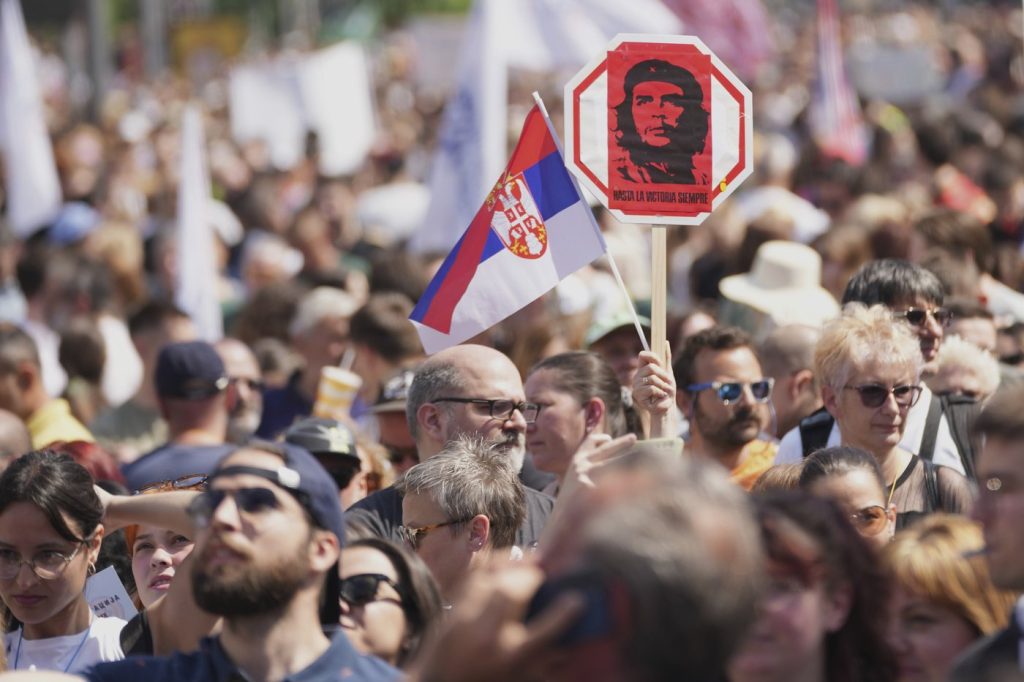BELGRADE, Serbia (AP) — Serbia is witnessing large-scale protests led by university students who are demanding a snap election. These demonstrations have emerged from months of anti-corruption activism, challenging the established power of President Aleksandar Vucic in the Balkan nation.
The call for an early election is framed as the only viable solution to the profound political crisis that Serbia is experiencing, which has been intensified following a catastrophic train station disaster on November 1, resulting in the deaths of 16 people. This tragedy is largely attributed to government corruption and negligence.
The building at the train station in Novi Sad had undergone renovations twice prior to the incident, where the concrete canopy collapsed onto the people below. Critics have accused the government of "graft-fueled negligence" and a blatant disregard for safety regulations, prompting increased public anger and frustration.
In the aftermath of the disaster, protests erupted across Serbia, with participants demanding justice and the enforcement of the rule of law. These protests have attracted considerable support, bringing together hundreds of thousands of citizens who share the students' grievances against the ruling establishment.
The students, who are organizing their actions through a joint social media account called "Students in Blockade," argue that entrenched government corruption has rendered state institutions incapable of performing their duties impartially. In their statement, they asserted, “We believe that democracy is the only right way to solve a political crisis of such proportions.”
A snap election would involve dissolving the populist-dominated parliament and scheduling early voting. However, Milos Vucevic, leader of the ruling Serbian Progressive Party and former Prime Minister, has dismissed this idea, labeling it a recipe for "disaster" for the country.
Critics have characterized Vucic, a right-wing populist, as someone who suppresses democratic freedoms. He has responded to the protests by suggesting that the student demonstrators are orchestrating a "color revolution" under foreign influence, particularly from the West. Despite these accusations, Vucic continues to publicly pursue Serbia's ambition to join the European Union, while simultaneously strengthening ties with Russia and China.
The students coordinating the protests operate without designated leaders or spokespersons, opting instead to make decisions collectively during faculty plenary sessions. Their grassroots approach epitomizes a growing political consciousness among younger generations in Serbia.
The students and their supporters remain determined in their quest for accountability and transparency within the government. Their ongoing activism underscores a significant shift in public sentiment regarding corruption in Serbia, revealing a rising demand for change and accountability from those in power.











